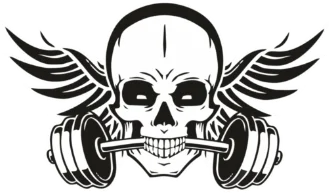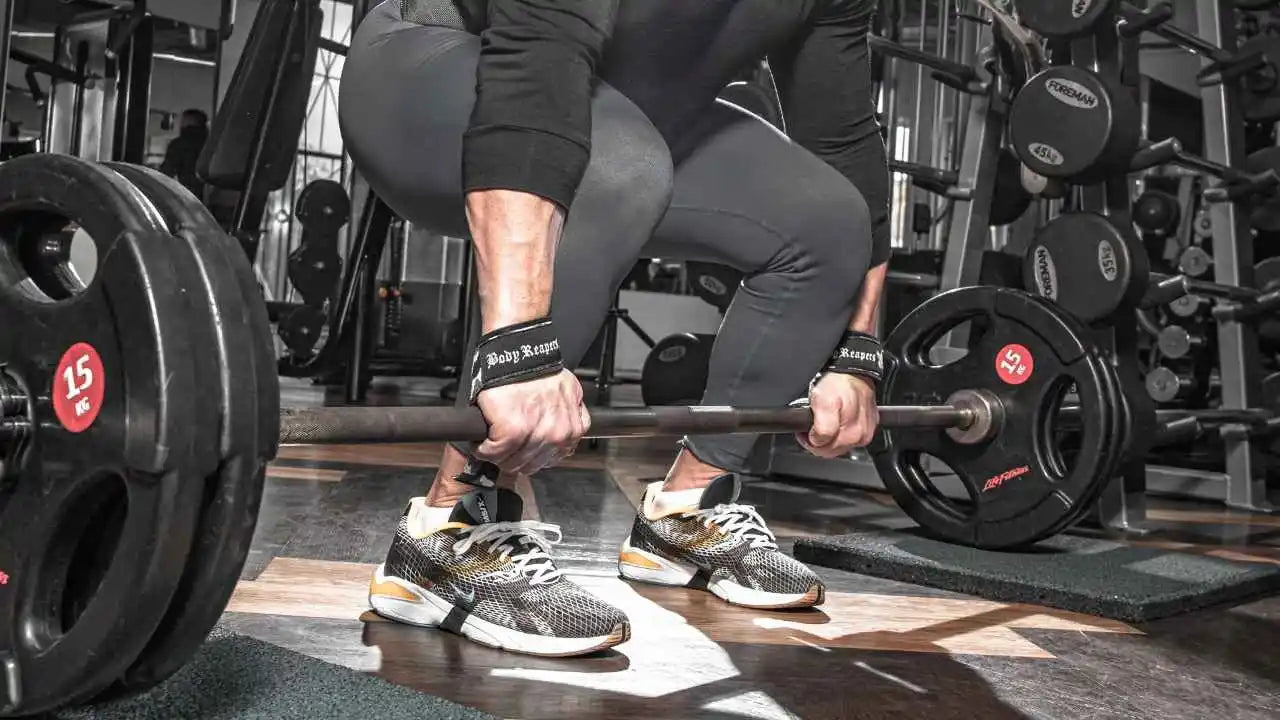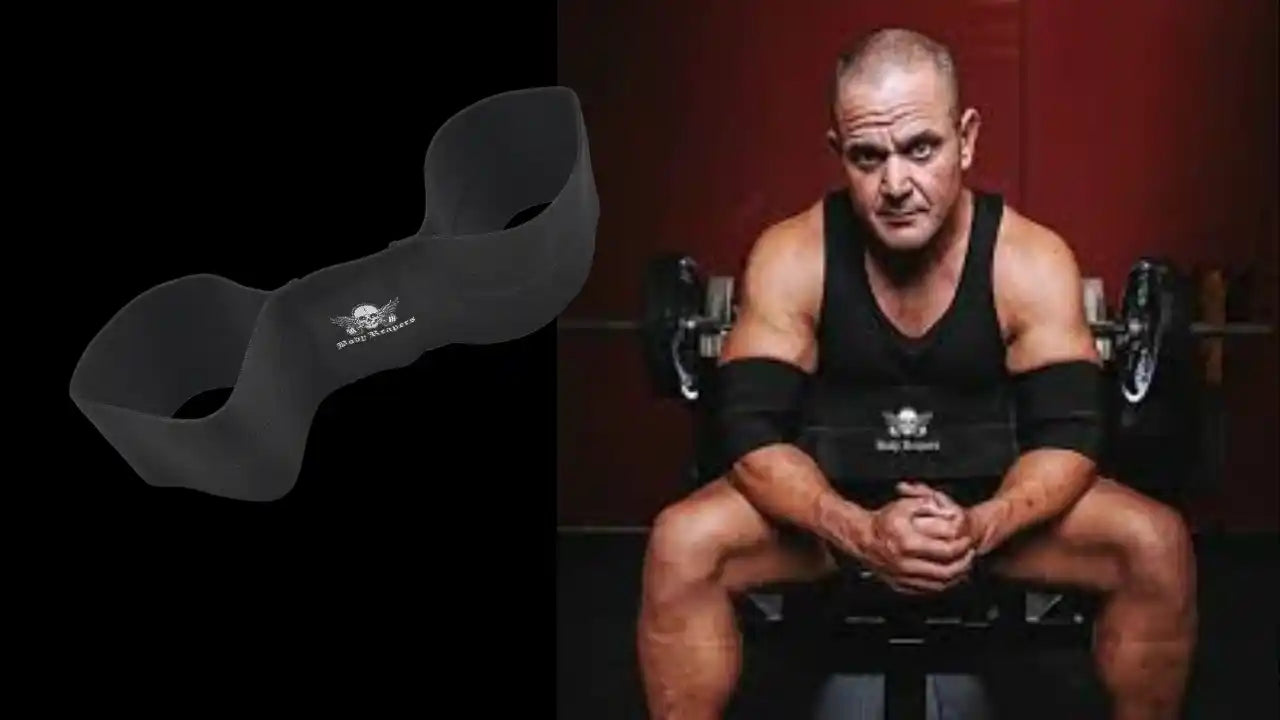The bench press is one of the most powerful exercises for building upper body strength, but it's also one of the most common lifts where athletes report wrist pain. If you've ever racked the bar after a set and felt sharp discomfort shooting through your wrists, you know how frustrating it can be. This type of pain can hinder progress, limit performance, and even lead to long-term injury if left unaddressed.
As a strength coach who has worked with lifters of all levels, wrist pain during bench pressing typically stems from a few specific issues. The good news is that with the right adjustments, you can protect your wrists, lift heavier weights, and continue making progress pain-free.
Why Wrist Pain Happens During Bench Press
1- Poor Wrist Positioning
Incorrect wrist positioning is the most common cause. Many lifters let their wrists bend backwards when pressing. This simple mistake places tremendous stress on tendons and ligaments, rather than distributing the load over the bones where it belongs. A study published in the Journal of Strength & Conditioning Research found that poor wrist alignment can increase joint stress by up to 45%. A neutral wrist stacked directly over the forearm is much safer.
2- Excessive Weight Load
A second problem is overloading too early. The instability at the wrists is often caused by chasing numbers without proper control. Not only does it spoil form, but it also makes sprains and strains more likely, which again are what we call a type of "bench press wrist injury.
3- Weak Wrist Mobility and Grip
Mobility plays a bigger role in benching than most people think. Limited range of motion in the wrists and forearms forces the joints into awkward positions under load. Weak grip strength compounds the issue. Research has shown that athletes with poor grip strength are at a significantly higher risk of injuries during weightlifting.
Explore More: Wrist Wraps for Bench Pressing: Do They Help?
4- Barbell Grip Issues
Grip width and bar position are also factors. A grip that is too wide or too narrow throws the wrists out of alignment. If the bar rests too far toward the fingers instead of the palm, the angle forces the wrists to carry more torque than they should.
5- Pre-Existing Injuries
Finally, don't overlook past injuries. Conditions such as tendonitis, carpal tunnel syndrome, or previous sprains make the wrists more vulnerable. Heavy pressing can easily aggravate these issues.
How to Fix Wrist Pain from Bench Pressing
1- Correct Your Bench Press Form
Form comes first. Keep your wrists straight and stacked on top of your elbows at all times while lifting. Don't bend them too far back. To maintain proper alignment, think about punching the ceiling with your knuckles. Check out this great breakdown of safe positioning if you're not sure:
2- Use the Right Grip and Bar Position
Change the way you are gripping until your wrist feels secure. This allows weight to register correctly, so a bar that sits across the mid-palm, not close to the fingers is preferable. Just switching up the grip a little bit will relieve discomfort.
3- Strengthen Wrists and Forearms
Targeted strengthening builds resilience. Add wrist curls, reverse curls, and farmer's carries to your program. A Sports Medicine study found that forearm strengthening reduced lifting-related wrist pain by 30%. Stronger supporting muscles mean better stability under heavy loads.
4- Wear Wrist Wraps or Supports
Wraps are a lifter's best friend for protecting wrists. They lock the joint into a safe position and prevent excessive backward bending.
Stop letting wrist pain hold you back from making progress. Train with the stability and protection of Body Reapers Wrist Wraps, trusted by lifters worldwide.
5- Reduce the Weight and Build Back Up
If pain persists, lower the load. Focus on technique with lighter weights, then gradually increase the load once form and stability improve. This approach prevents chronic injury while still allowing consistent progress.
Why You Should Wear Wrist Wraps When You Bench Press
Wrist wraps aren’t just accessories. They are an implementation which can modify the way you train.
1- Improved Stability
By locking the wrists into a neutral position, wraps reduce wobble and give you more control over the bar.
2- Less Joint Stress
Wraps keep pressure off the tendons and ligaments. This makes it great for lifters who deal with more weight.
3- Better Performance
When your wrists are locked in and stable, more of your power goes straight into the lift. That kind of efficiency can help you move heavier weight with better control.
4- Injury Prevention
Wraps reduce the risk of small strains developing into serious injuries. Consistent protection helps maintain long-term joint health.
5- Confidence Under Heavy Loads
Sometimes having a mental edge is just as important as having a physical one. You can push for new PRs with confidence when you know your wrists are secure. See the difference for yourself. Try Body Reapers Wrist Wraps, built for strength athletes who demand support and performance. Shop Body Reapers Wraps.

Recommended: Ladies Wrist Wraps: Your Complete Guide to Support, Safety and Stronger Lifts
How to Prevent Wrist Pain During Bench Press
1- Warm Up Before Training
Cold joints are more vulnerable to injury. Take five minutes to warm up your wrists and shoulders with rotations, stretches, and banded drills before your first pressing set.
2- Improve Mobility and Flexibility
Daily mobility work pays off. Stretch the Wrists Wrist extensions, flexions, and a few other yoga-inspired stretches (like the tabletop or prayer position) help alleviate stiffness and maintain wrist health
3- Progress Slowly
Build up gradually. Stick to controlled weight jumps of 5 to 10 percent per week. Sudden leaps in weight often lead to breakdowns in form and unnecessary strain.
4- Use Alternatives When Needed
If the pain persists, perform dumbbell presses instead. Dumbells also allow the wrist to rotate naturally and save it from undue stress. Machines are another option that provide more stability while still letting you target the chest.
FAQs
Why do my wrists hurt when I bench press?
Usually, it is because of poor form, overload, or weak mobility. Correct your wrist position, strengthen your forearms, and don’t push beyond your limits.
Can bench press cause long-term wrist injury?
Yes, don't you pay attention. Long-term strain can lead to tendonitis, ligament damage, or chronic pain.
How do I stop wrist pain during bench pressing?
Work on getting your form just right, strengthening your wrists, and utilising support gear like wrist wraps.
Conclusion
You should never be kept back from performing the bench press due to wrist pain. It is no mystery what causes it: poor form, excessive load, limited mobility, and old injuries. The fixes are equally simple, improve technique, strengthen the wrists, wear wraps. Good training, sensible warm-ups and gradual progression are the keys to prevention.





Leave a comment
This site is protected by hCaptcha and the hCaptcha Privacy Policy and Terms of Service apply.